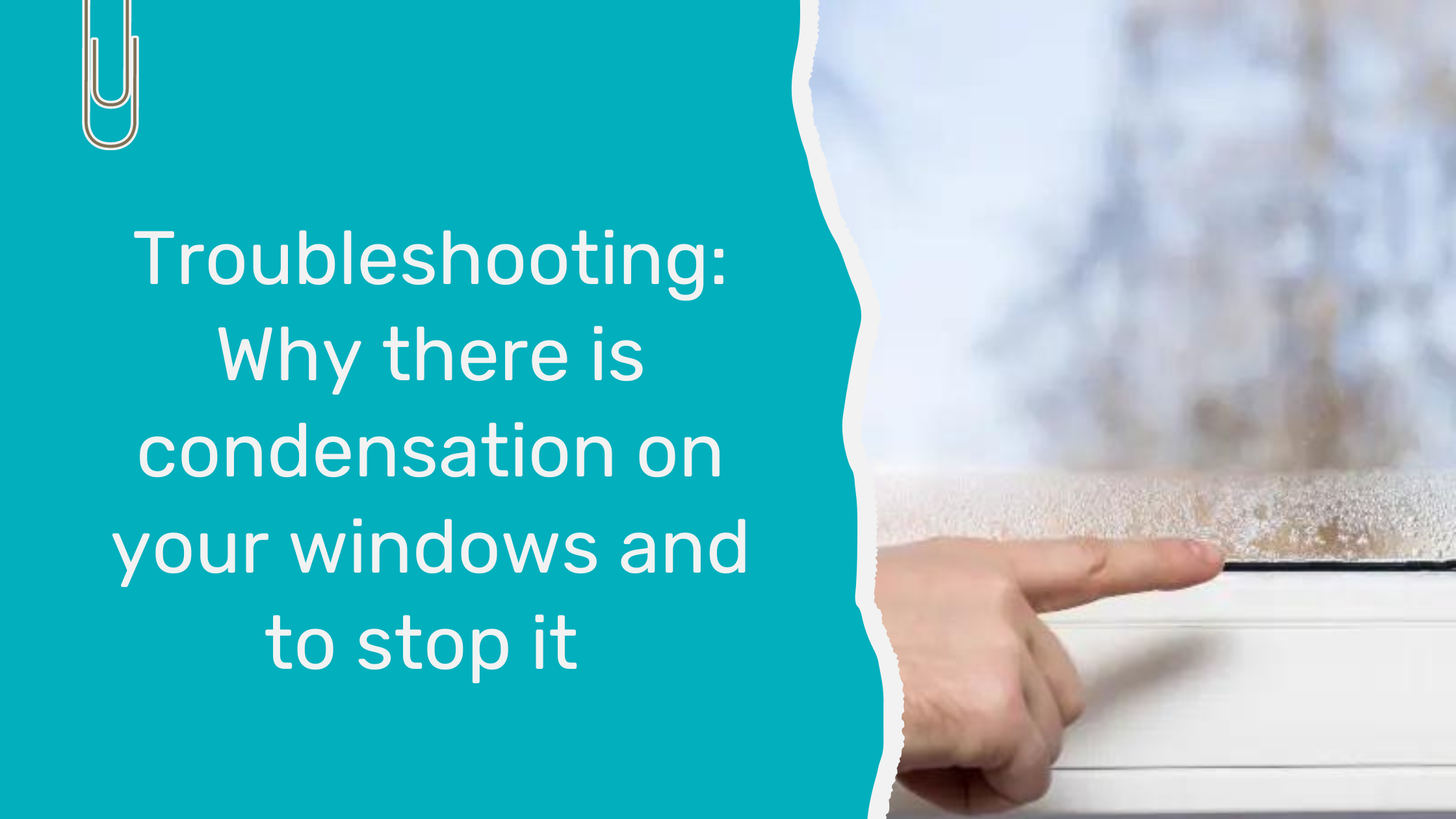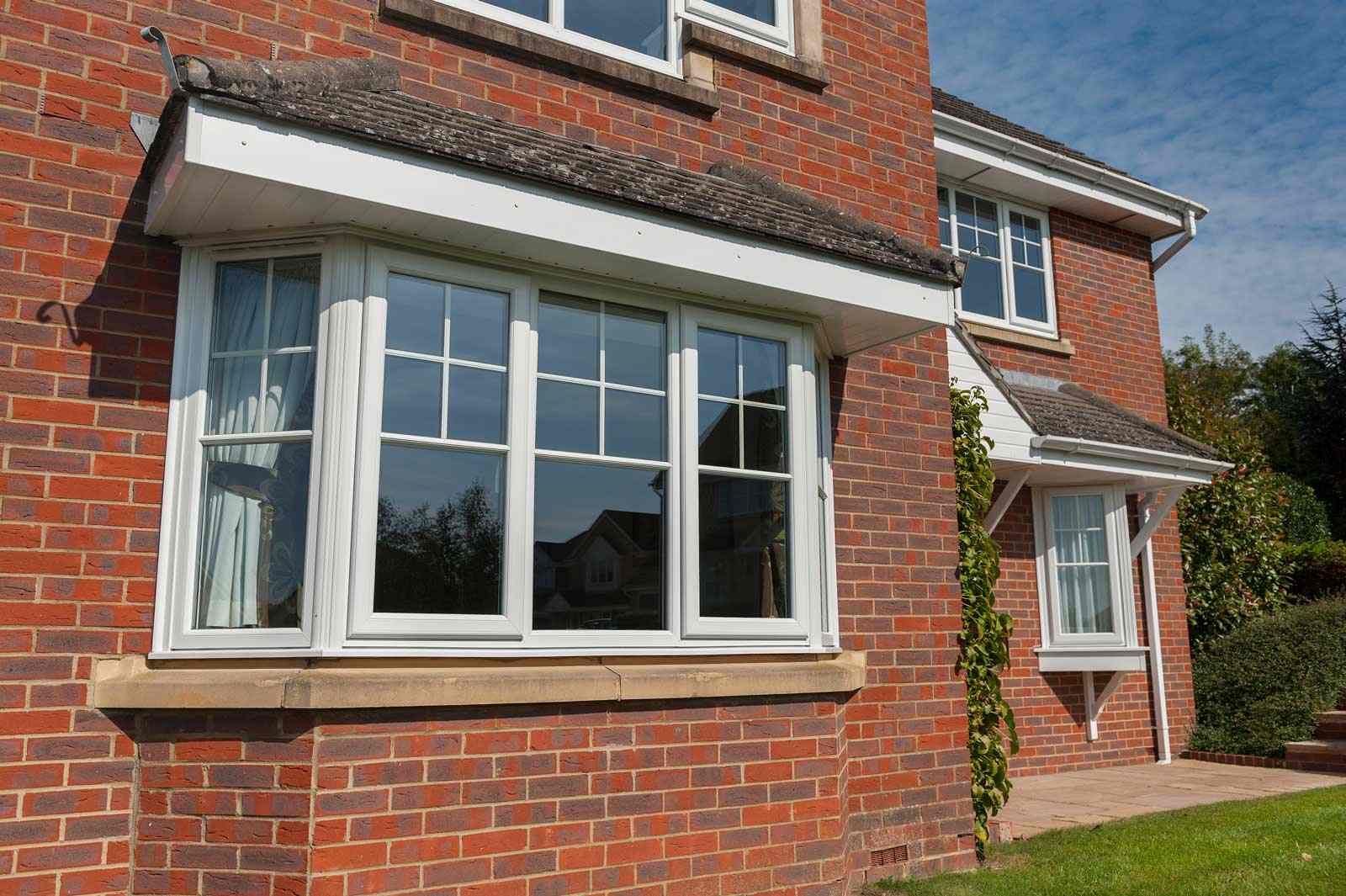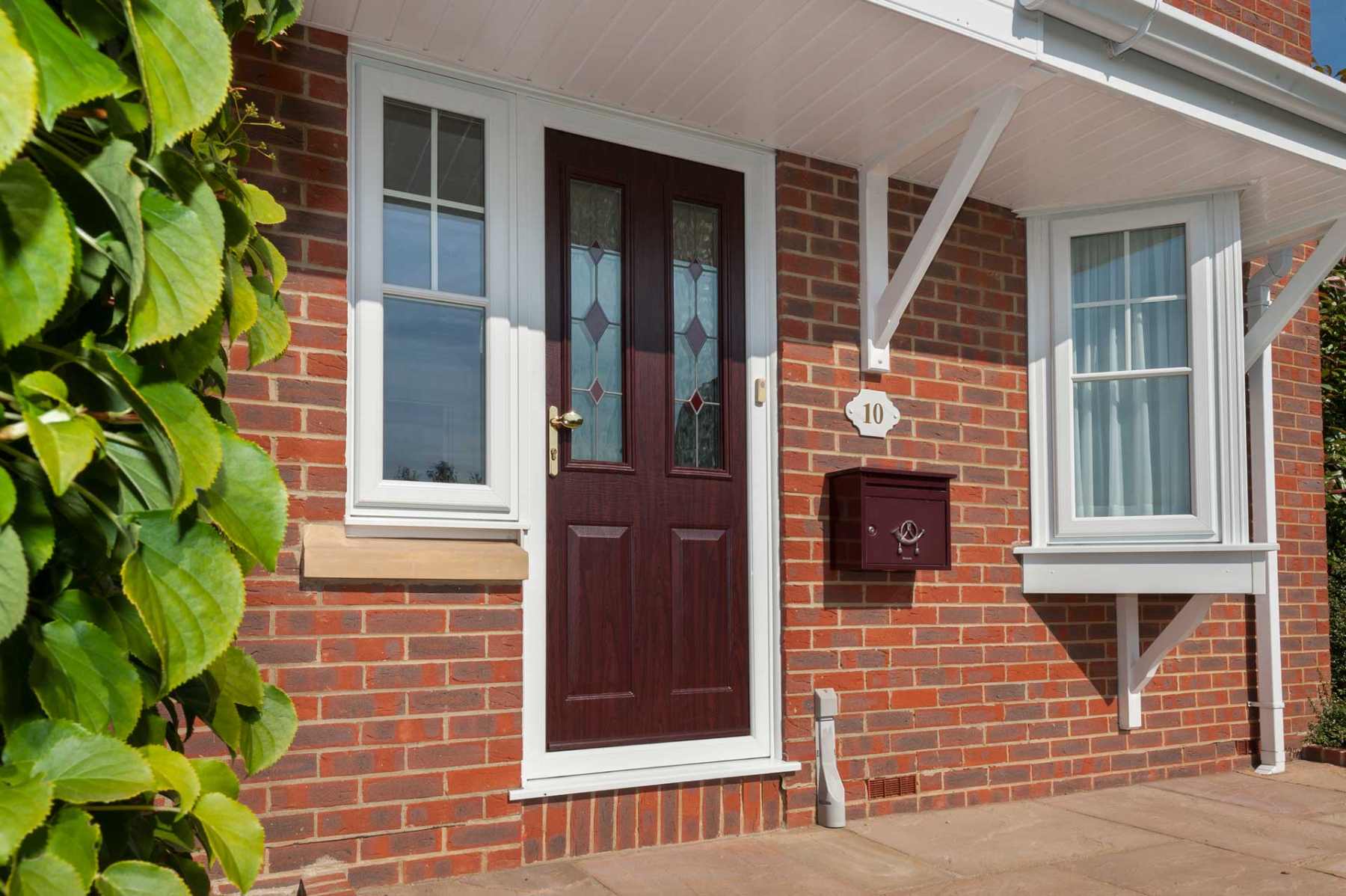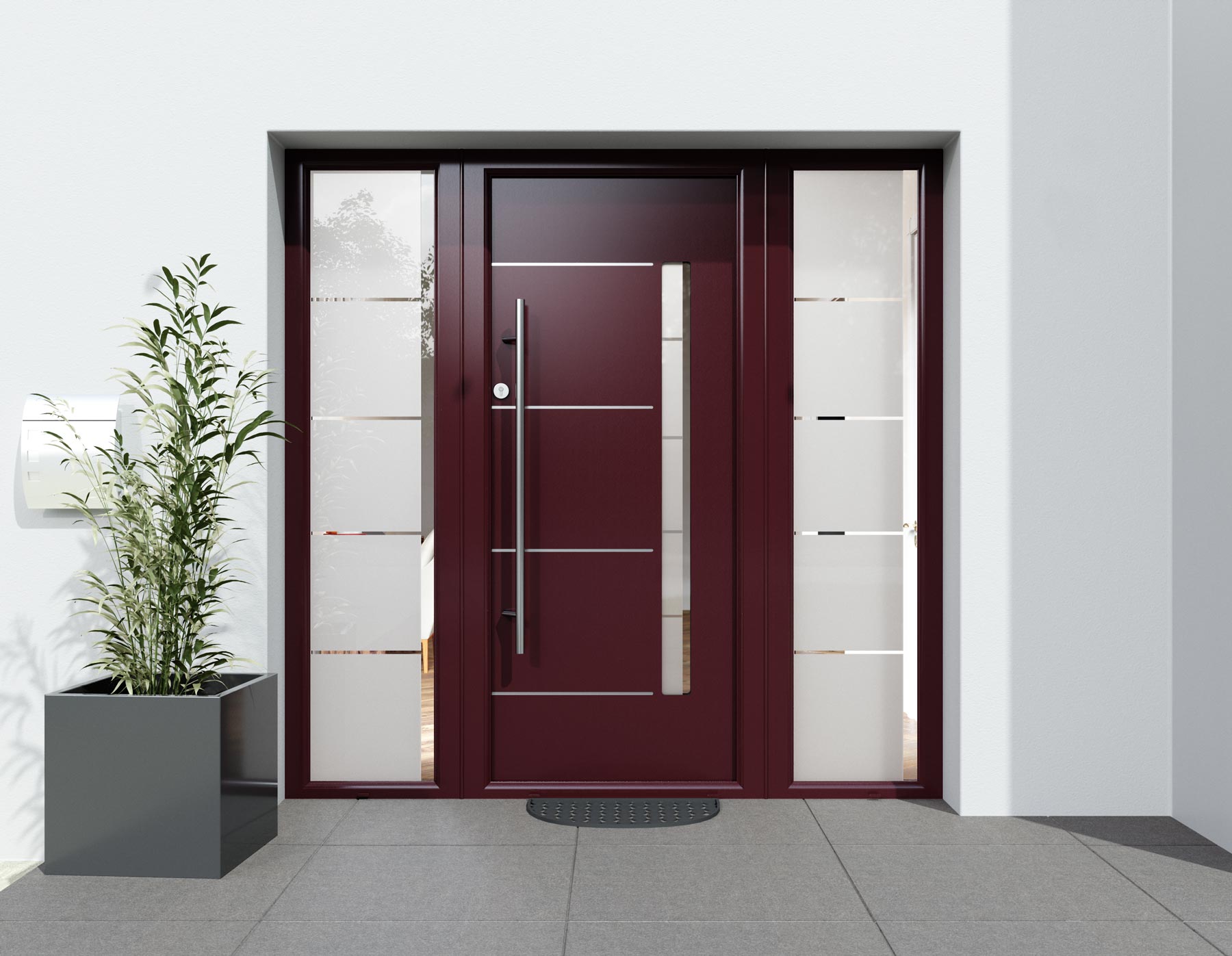How to stop condensation in your windows: Expert Advice
At Total Home NI, we are always here to help and today we are giving our expert advice on how to stop condensation in your windows but also why there is condensation in the first place.
Condensation is the build-up of moisture and can has the possibility of damaging your furniture and windows. This can bring on mould and be damaging to your healthy, sometimes causing coughs and shortness of breath. The only method to avoid condensation from developing on your home’s windows and walls is to address the root of the issue. Finding out what is generating the extra moisture in your home is the first step. Finding out how to stop condensation on windows is a good first step in reducing the chances of damp, mould and mildew in a home. Many people find condensation builds up particularly overnight or in the winter.
What causes condensation in windows?
When there is too much moisture in the air, it condenses on the inside of windows, causing window condensation. This could be brought on by a lack of ventilation, which prevents excess moisture from being removed from the air, or by inadequate insulation inside the home, which causes damp air to hit a cold window and produce water droplets.
Condensation can happen on walls and other surfaces, but many homeowners only notice it on windows because of the “steamed up” appearance it creates or, perhaps worse, because it results in water running down the panes and collecting on the window cills. Homeowners often notice window or door condensation in the winter or in the morning and this is because moisture in the air that forms on cold surfaces can cause condensation when it’s colder outside than inside.
The molecules in warm air are widely spaced apart, which “retains” the moisture, whereas the molecules in cool air are closer together. As the molecules approach near enough together, they mix into visible liquid. The “dew point” is used to describe this.
Condensation builds up on the kitchen window when you are cooking
or;
There is condensation on the mirror following a shower or a bath
Condensation can develop on any cold surface, not just windows. Particularly where moisture can become trapped:
- Windows with drapes or coverings
- Between bulky furniture and a chilly wall
- Inside a fitted wardrobe mounted to a wall outside
Now for the most important information- How to stop condensation on windows:
A lack of ventilation is the primary source of condensation. Enhancing ventilation will assist balance the humidity inside and outside of a house. Houses used to have poorly installed windows, doors, chimneys, and air vents that enabled air to circulate.
Over the past thirty years, homes have significantly improved their energy efficiency, which has led to many of them becoming sealed structures that retain moisture. Over the 30 years of Total Home NI, we have developed the most energy-efficient windows and glass doors to ensure condensation is kept to a minimum.
Our tips to permanently remove condensation on windows:
- Better ventilation
- Installing double or better again, Triple glazed windows. Both available from Total Home NI. Check out our information pages on both.
- Reducing moisture within the home
Now, we will tell you how you can carry out these tips to reduce the condensation in your windows:
To improve the ventilation:
Dehumidifier/PIV Unit
Positive Input Ventilation (PIV) systems or also known as dehumidifiers can be installed in regions that produce too much moisture for a simpler to install solution, such as, moist basements and kitchens.
The machine takes the humid air from within the house and brings in ‘dry’ air from the outside. This causes an exchange of air to help maintain a balance in humidity.
Ventilation/Extractor fan
For a bathroom to lessen the excessive humidity that showers produce, there must be enough evacuation. Some fans incorporate humidity controls that enable the fan to run on its own if the humidity rises above a predetermined level.
For cooking, kitchens also require effective extraction systems to eliminate smoke, odours, and moisture. All ovens should be installed with an overhead extractor fan.
Opening windows
When fossil fuels were utilised to heat the majority of homes, traditional windows were employed to offer efficient ventilation, which was crucial.
Sliding sash windows (LINK) were created with the ability to open from the bottom and top, allowing for efficient airflow circulation.
Bay windows (LINK) are manufactured with two casement windows on either side to allow for better ventilation and a better draw of air.
Glass arches/Transom windows above doors were created to improve circulation around a building to ventilate and shift heat around interior.
These are manufactured and available at Total Home NI.
All windows in the modern era feature multi-point locks that enable them to be left open safely for ventilation. One of the simplest and most straightforward ways to keep condensation out of your home is to do this.
There are a number of factors within at home that increase the build-up of moisture and these are a few to look out for and monitor:
- Pans, kettles, and cooking
- Hot water and showers
- Drying garments on radiators or indoor drying hangers
- Huge houseplants
- Undiscovered leaks of water in cracks or under flooring
- Basements and ground-level buildings with rising damp
Advantages of double or triple glazed windows:
Double glazed windows help to reduce condensation because the glass is not as cold as single glazed. The air gap inside the double glazing sandwich helps to keep the internal pane of glass closer to room temperature. This difference in temperature is enough to stop the water vapour from reaching the dew point and forming condensation on the glass. Double glazing can’t eliminate condensation entirely, so following a combined approach of windows, ventilation and reduced moisture is the only way to completely get rid of condensation.
Dehumidifiers as an extra helping hand:
Dehumidifiers collect all of the moisture in the air. They are a brilliant alternative for rooms that have little to no window ventilation, rooms where clothes are drying or if there has been a leak or a flood.
If there is ever condensation on your new windows:
Windows that have condensation on the interior– Condensation between the glass panes within a double- or triple-glazed window indicates that the glazing unit’s seals have failed. If you are experiencing this with your Total Home NI windows are within your 10-Year Guarantee, contact us today.
Morning condensation on the windows’ exteriors- In the summer, condensation can be seen forming on the window’s exterior in the early morning hours. This indicates that although it is humid and warming swiftly outside, the glass is still cold. As the glass gets warmed up by the sun, this is quite normal and will go away fast.
Window condensation in the bedroom– If there are people sleeping in the bedroom at night, this can occasionally develop condensation in the morning. The simplest approach to manage this is to leave a window on a vent open or leave the entrance to the bedroom open while leaving a window for ventilation open.
For further advice, check out this Belfast Live article for further tips and tricks.
Start Your Quote today!
Find prices for your home improvements with our free online quoting tool today!








